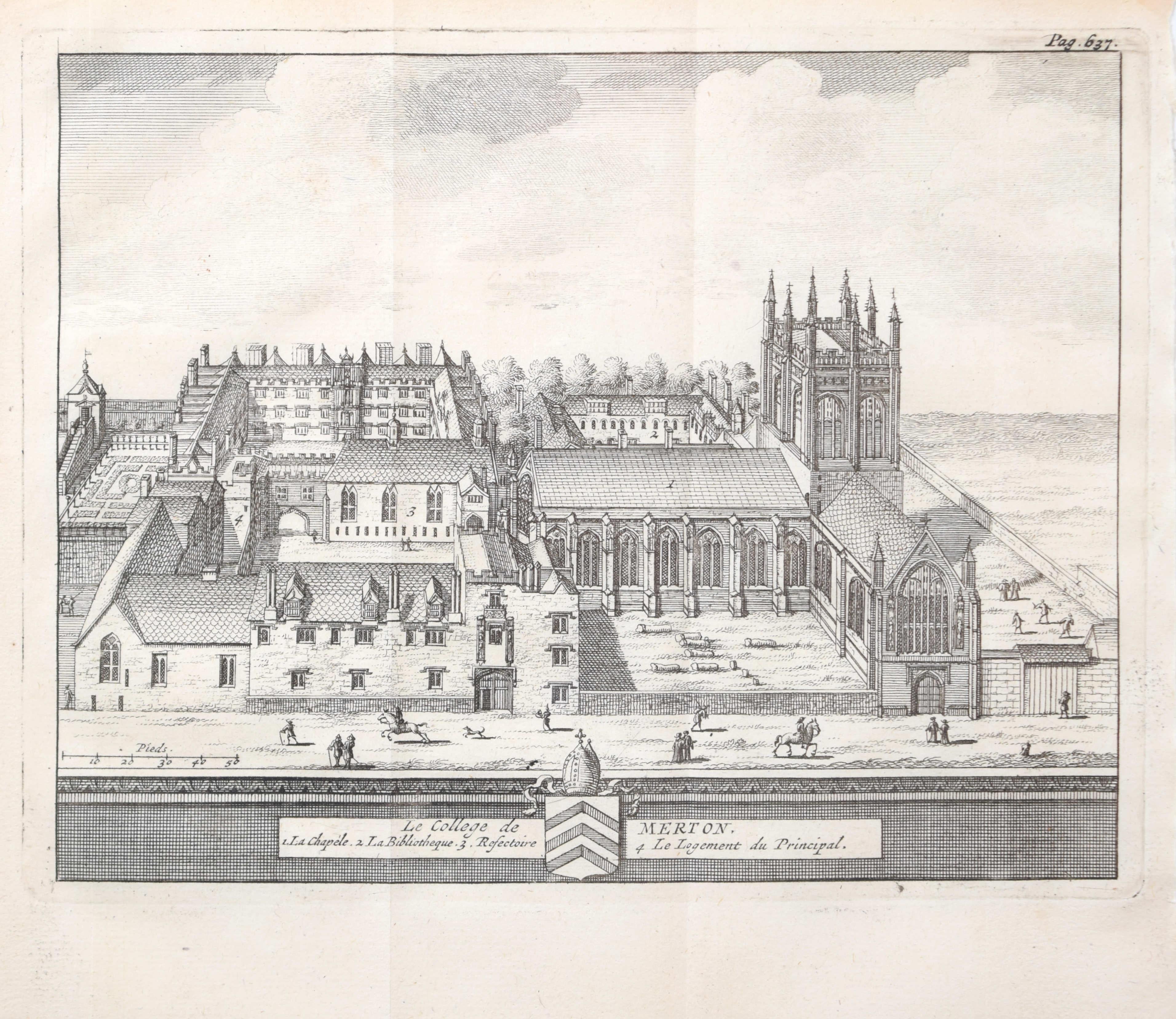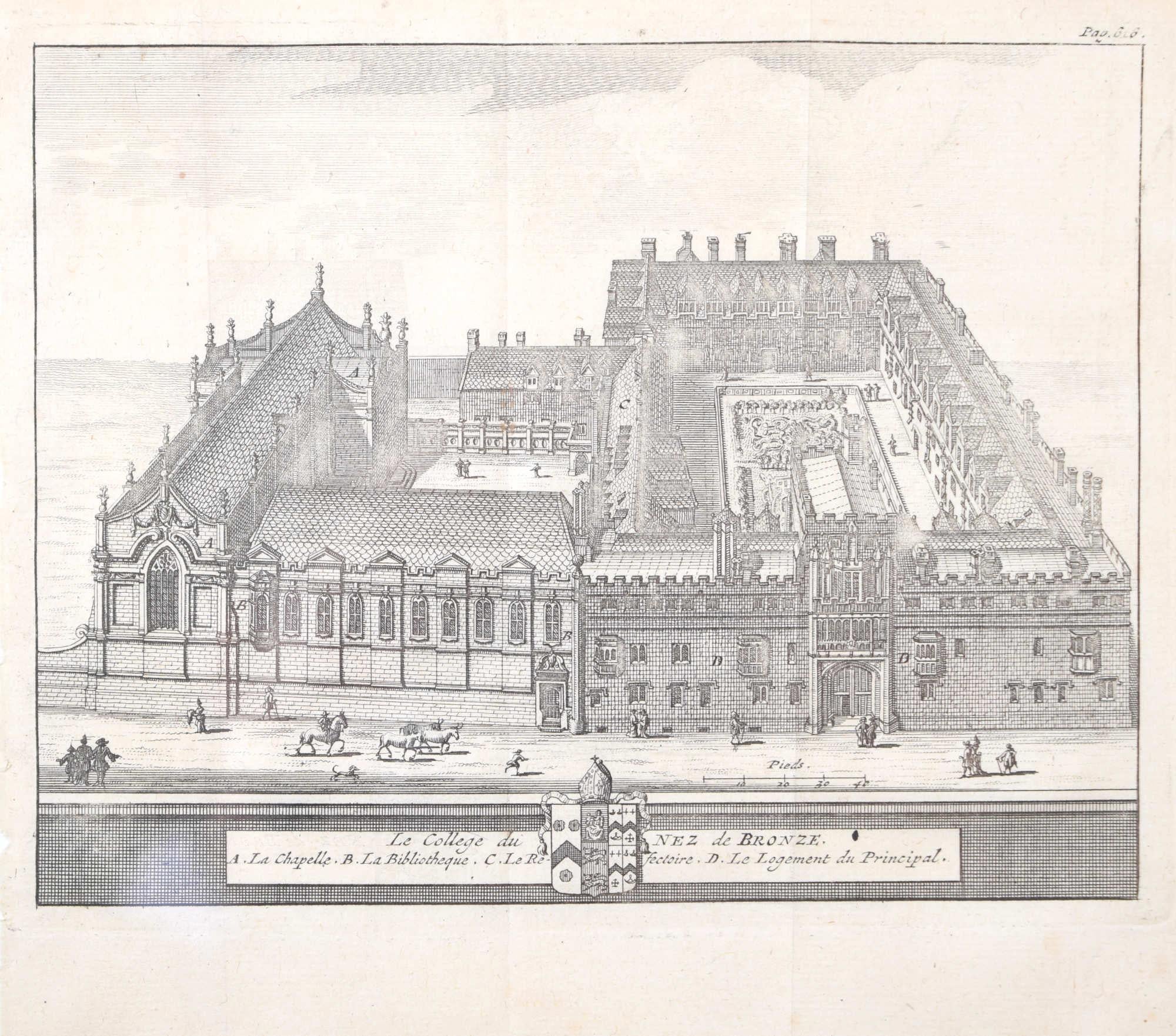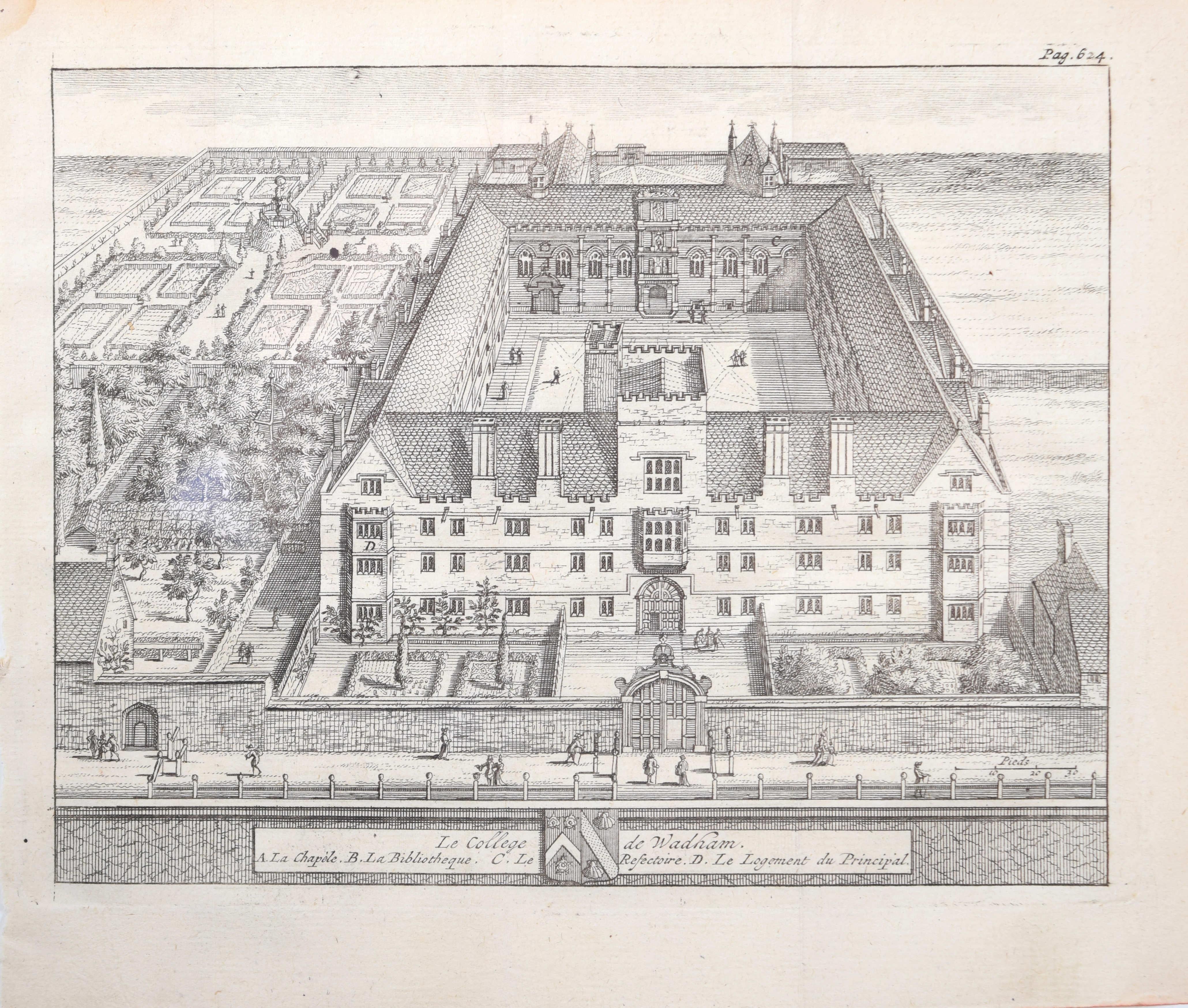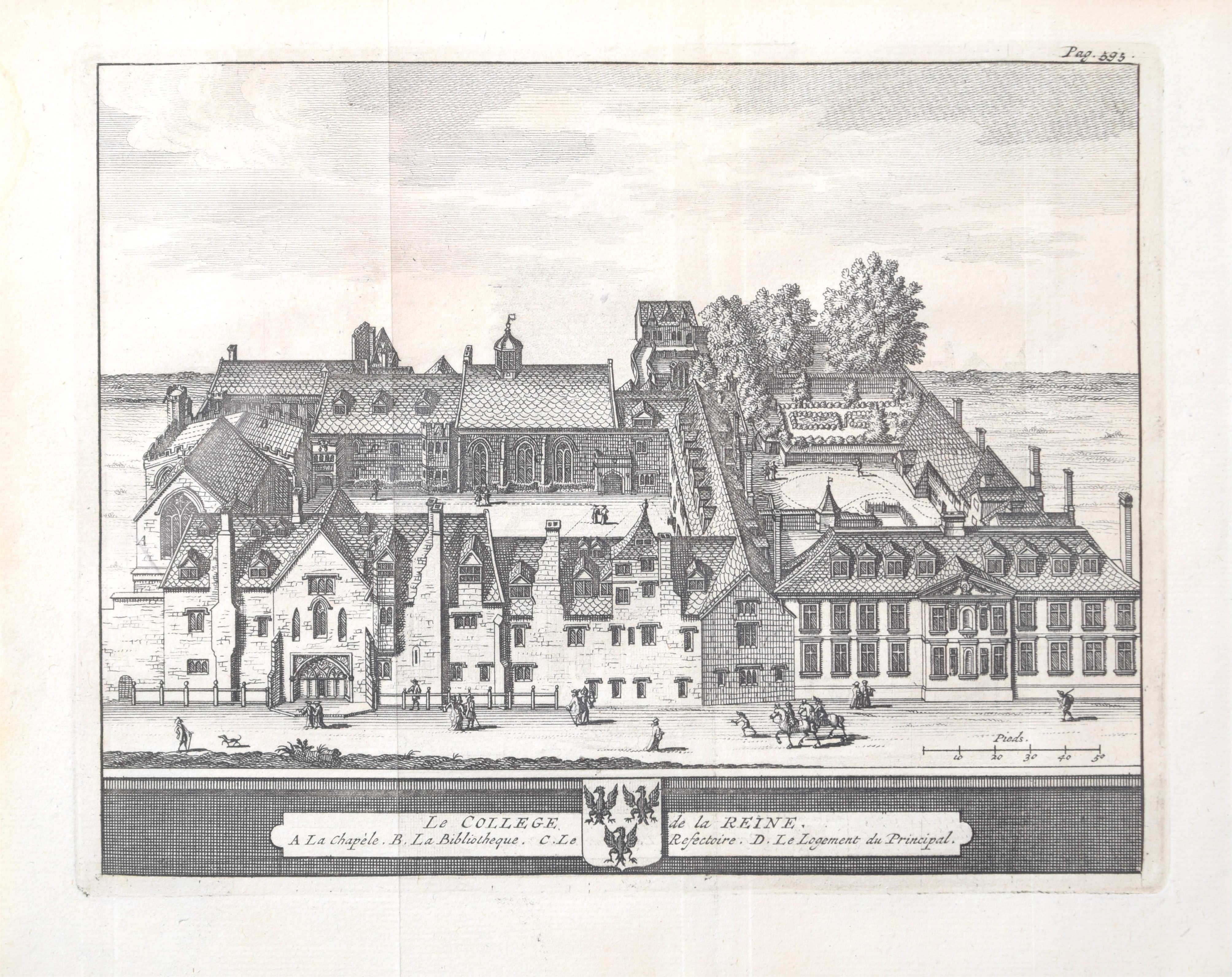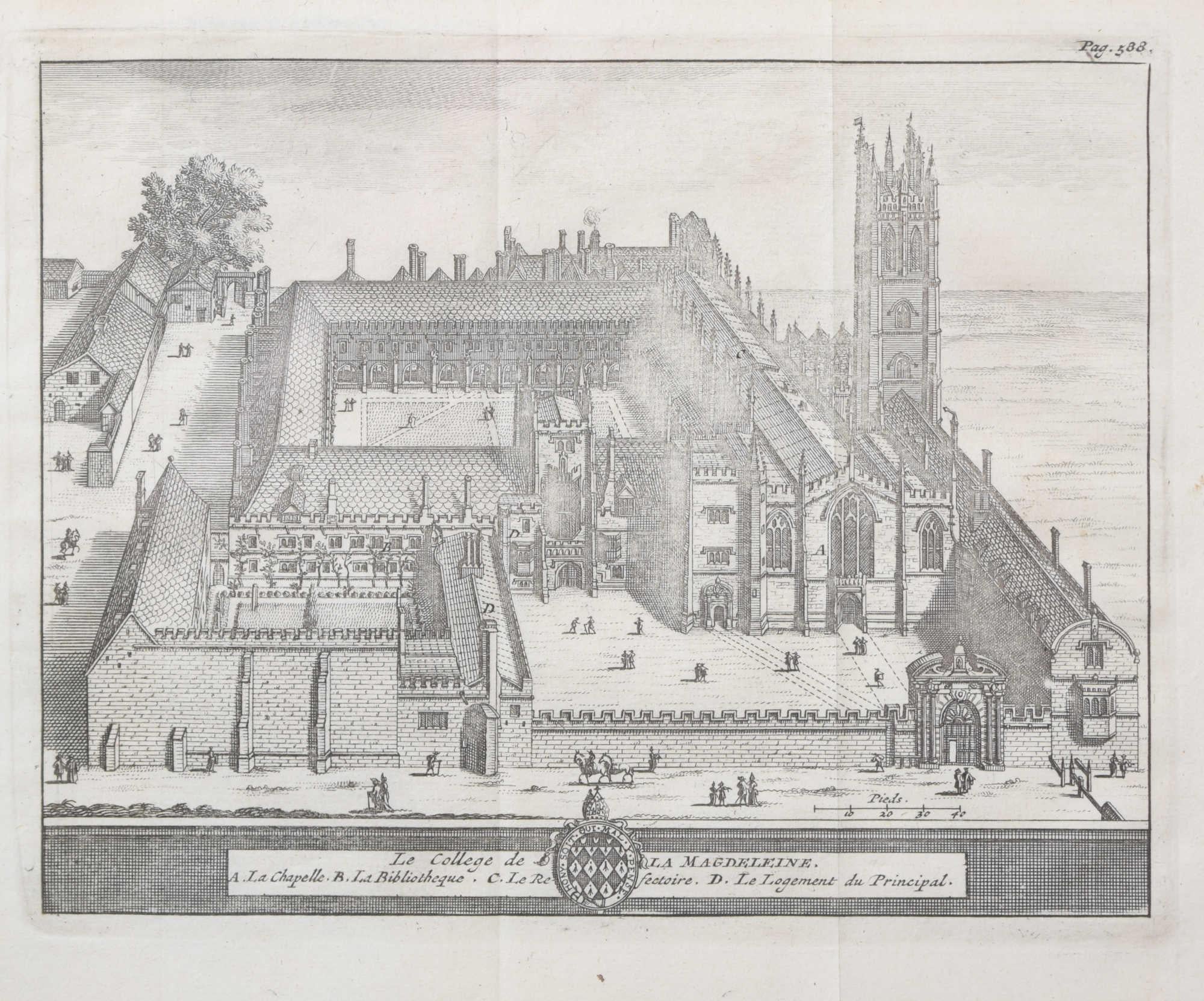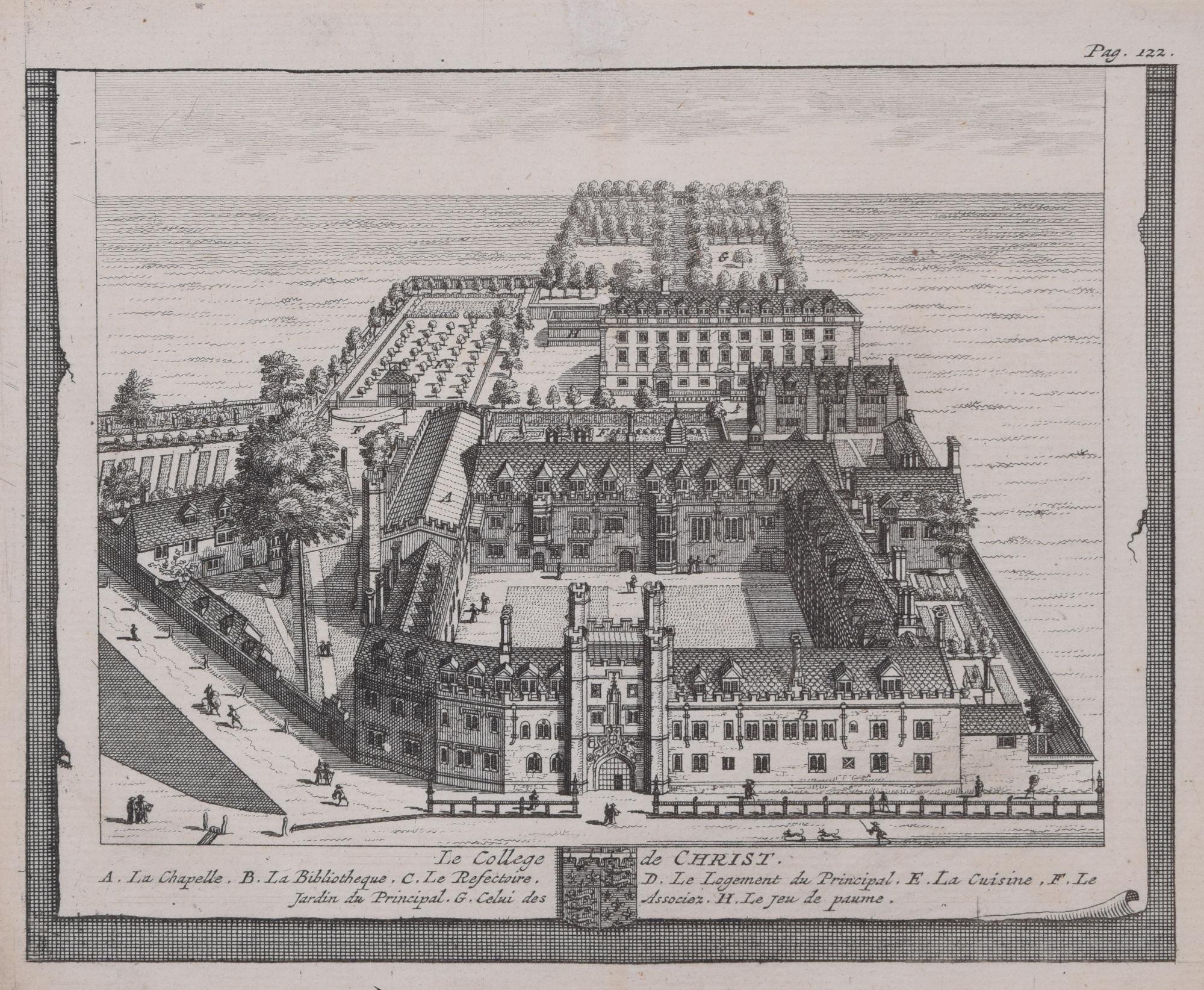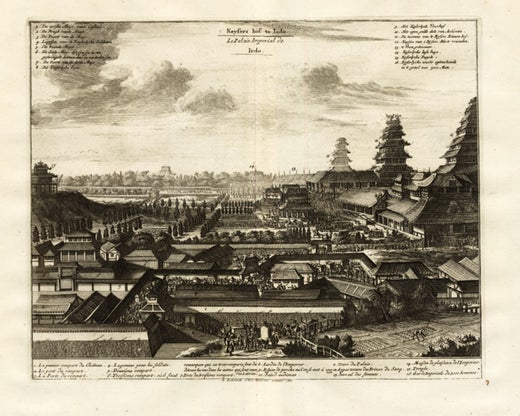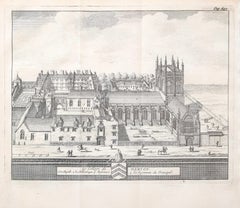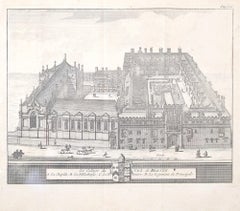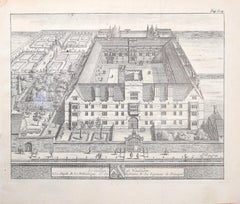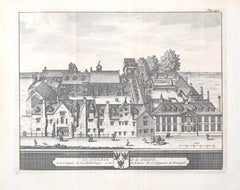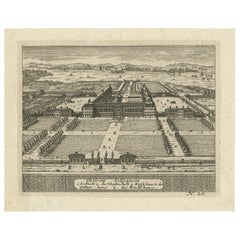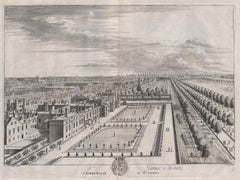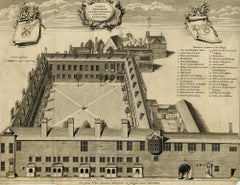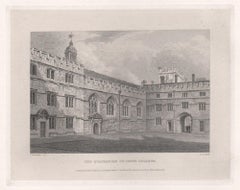Items Similar to Christ Church, Oxford engraving by Pieter van der Aa after David Loggan
Want more images or videos?
Request additional images or videos from the seller
1 of 3
Pieter Van Der AaChrist Church, Oxford engraving by Pieter van der Aa after David Loggan1727
1727
$384.24
£280
€329.93
CA$533.35
A$598.31
CHF 309.35
MX$7,215.99
NOK 3,935.52
SEK 3,685.99
DKK 2,462.38
About the Item
Pieter van der Aa (1659-1733), after David Loggan (1634–1692)
Christ Church, Oxford
Engraving
12 x 16 cm
An eighteenth-century view of Christ Church, engraved by Pieter van der Aa after David Loggan, the noted engraver, draughtsman, and painter.
Pieter van der Aa of Leiden was a Dutch publisher best known for preparing maps and atlases, though he also printed editions of foreign bestsellers and illustrated volumes. He is noted for the many engravings he produced after David Loggan's series of Oxford and Cambridge colleges and costumes. In 1727 Van Der Aa illustrated "Les Delices de la Grande Bretagne & de L'Irelande" by James Beeverell, the book in which this engraving appears.
- Creator:Pieter Van Der Aa (1659 - 1733, Dutch)
- Creation Year:1727
- Dimensions:Height: 4.73 in (12 cm)Width: 6.3 in (16 cm)
- Medium:
- Period:
- Framing:Framing Options Available
- Condition:A good impression.
- Gallery Location:London, GB
- Reference Number:1stDibs: LU795311120242
Pieter Van Der Aa
Pieter van der Aa began his career at Leiden in 1683 as a Latin trade publisher, publishing classical texts about medicine and science. He was a Dutch publisher of maps and atlases active in the late 17th and early 18th centuries. During his long and impressive career, Van der Aa produced thousands of maps, including a vast 28 volume atlas containing no less than 3,000 maps.
About the Seller
4.8
Vetted Professional Seller
Every seller passes strict standards for authenticity and reliability
Established in 2014
1stDibs seller since 2017
356 sales on 1stDibs
Typical response time: 7 hours
- ShippingRetrieving quote...Shipping from: London, United Kingdom
- Return Policy
Authenticity Guarantee
In the unlikely event there’s an issue with an item’s authenticity, contact us within 1 year for a full refund. DetailsMoney-Back Guarantee
If your item is not as described, is damaged in transit, or does not arrive, contact us within 7 days for a full refund. Details24-Hour Cancellation
You have a 24-hour grace period in which to reconsider your purchase, with no questions asked.Vetted Professional Sellers
Our world-class sellers must adhere to strict standards for service and quality, maintaining the integrity of our listings.Price-Match Guarantee
If you find that a seller listed the same item for a lower price elsewhere, we’ll match it.Trusted Global Delivery
Our best-in-class carrier network provides specialized shipping options worldwide, including custom delivery.More From This Seller
View AllMerton College, Oxford engraving by Pieter van der Aa, after David Loggan
By Pieter Van Der Aa
Located in London, GB
Pieter van der Aa (1659-1733), after David Loggan (1634–1692)
Merton College, Oxford
Engraving
12 x 16 cm
An eighteenth-century view of Merton College, engraved by Pieter van der Aa...
Category
Early 18th Century Prints and Multiples
Materials
Engraving
Brasenose College, Oxford engraving by Pieter van der Aa after David Loggan
By Pieter Van Der Aa
Located in London, GB
Pieter van der Aa (1659-1733), after David Loggan (1634–1692)
Brasenose College, Oxford
Engraving
12 x 16 cm
An eighteenth-century view of 'Le Nez de Bronze', or Brasenose, engraved...
Category
Early 18th Century Prints and Multiples
Materials
Engraving
Wadham College, Oxford engraving by Pieter van der Aa after David Loggan
By Pieter Van Der Aa
Located in London, GB
Pieter van der Aa (1659-1733), after David Loggan (1634–1692)
Wadham College, Oxford
Engraving
12 x 16 cm
An eighteenth-century view of Wadham, engrave...
Category
Early 18th Century Prints and Multiples
Materials
Engraving
Queen's College, Oxford engraving by Pieter van der Aa after David Loggan
By Pieter Van Der Aa
Located in London, GB
Pieter van der Aa (1659-1733), after David Loggan (1634–1692)
Queen's College, Oxford
Engraving
12 x 16 cm
An eighteenth-century view of Le College de la Reine (Queen's College), engraved by Pieter van der Aa after David Loggan, the noted engraver, draughtsman, and painter. The college was founded in 1341 by Robert de Eglesfield in honour of Philippa of Hainault (the wife of King Edward III...
Category
Early 18th Century Realist Prints and Multiples
Materials
Engraving
Magdalen College, Oxford engraving by Pieter van der Aa after David Loggan
By Pieter Van Der Aa
Located in London, GB
Pieter van der Aa (1659-1733), after David Loggan (1634–1692)
Magdalen College, Oxford
Engraving
12 x 16 cm
A magnificent eighteenth-century view of Magdalen, engraved by Pieter van...
Category
Early 18th Century Realist Prints and Multiples
Materials
Engraving
Christ's College, Cambridge engraving by Pieter van der Aa after David Loggan
By Pieter Van Der Aa
Located in London, GB
To see our other views of Oxford and Cambridge, scroll down to "More from this Seller" and below it click on "See all from this Seller" - or send us a message if you cannot find the ...
Category
Early 18th Century Realist Prints and Multiples
Materials
Engraving
You May Also Like
Antique Engraving of Chelsea College – View with Formal Gardens, ca.1705
Located in Langweer, NL
Antique Engraving of Chelsea College – Early 18th Century View with Formal Gardens
This finely detailed antique engraving presents a bird’s-eye view of Chelsea College (now the Roya...
Category
Antique Early 18th Century German Prints
Materials
Paper
St James's House, London, engraving, Johannes Kip after Leonard Knyff, 1708
By Johannes Kip after Leonard Knyff
Located in Melbourne, Victoria
'St James's House - Le Palais Royal de St James'
Engraving by Johannes Kip after Leonard Knyff.
Kip was a Dutch engraver who moved to London circa 16...
Category
18th Century Naturalistic Landscape Prints
Materials
Engraving
Gresham College
By George Vertue
Located in Middletown, NY
Etching with engraving on cream laid paper with a Garden of Holland or Maid of Dort Pro Patria watermark, 11 x 14 1/4 inches (278 x 361 mm), thread margins. Lettered with the title in a cartouche at the top-center sheet, continuing "a Latere Occidentali Prospeus AD MDCCXXXIX," with numbers over the image at right that correspond to a key 1 to 29, and with publication details: "Georgius Vertue Londini delineavit et Sculpsit anno MDCCXXXIX". Multiple expert repairs, notably a Y-shaped, expert paper tape repair on the verso. Handling creases, toning. All issues are consistent with age. An impression of this work may be viewed in the permanent collection of the British Museum, registration No. 1880,1113.3963.
A bird's eye view of the college in Broad Street, London, showing the courtyard, adjoining stable yard to the right, and the buildings at the back.
This work was included in Frederick Crace...
Category
Early 18th Century English School Landscape Prints
Materials
Handmade Paper, Engraving, Etching
The Quadrangle of Jesus College. Oxford University. Antique C19th engraving
Located in Melbourne, Victoria
'The Quadrangle of Jesus College'
Engraving by John Le Keux after Frederick Mackenzie, 1837. From James Ingram's 'Memorials of Oxford'.
135mm by 175mm (...
Category
19th Century Naturalistic Landscape Prints
Materials
Engraving
L'Hostel de Chevreuse, French town house in Paris, mid 17th century engraving
By Matthaeus Merian
Located in Melbourne, Victoria
'L'Hostel de Chevreuse'
Copper-line engraving by Matthaeus Merian.
From 'Topographia Galliae', a fine series of engravings of 17th-century French landscapes, gardens, buildings an...
Category
Mid-18th Century Rococo Landscape Prints
Materials
Engraving
Pianta dei Giardini di S. Maria - Roma - Etching - 17th Century
Located in Roma, IT
Pianta dei Giardini di S.Maria - Roma is an original drawing in etching technique on ivory-colored paper, realized by Anonymous Artist of the 17th Century...
Category
17th Century Modern Landscape Prints
Materials
Etching
More Ways To Browse
Engraving Christ
Map Of Oxford
Cambridge Map
Antique Maps Cambridge
Christ Church Oxford
Henry Moore Style
Joan Miro Red
Oxford Library
Vintage Hat Collectors
1980 Olympics
1983 Cartier
Banksy Street Sign
Bernard Buffet Signed
Flying Boat
Hand Signed And Numbered Chagall
London Bus
Marina Picasso Collection Limited Edition Lithographs
Medieval Woodcut
